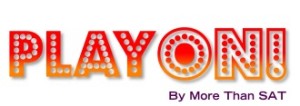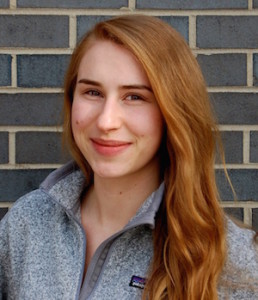An innovative, play-based experiential learning program by More Than SAT.
Play On! is MoreThanSAT’s summer theater program created for elementary and middle school students looking to increase their confidence in public speaking and expand their knowledge of the performing arts.
The program is divided into two age groups: The Players (incoming 4th, 5th, & 6th graders), and The Ensemble (incoming 7th, 8th, & 9th graders). Both groups will follow the same three-unit curriculum and will have the opportunity to perform in an original play at the end of the summer.
ACT ONE: Imagination, Communication, + Play [Weeks 1&2]:
In Act One, the curtain rises and we learn how to take center stage. Performers gain basic listening, concentration, and imagination-building skills, learn essential ensemble-building techniques (such as voice, movement, and collaboration), and begin to develop a sense of stage presence and play.
ACT TWO: Working Behind the Scenes [Weeks 3&4]:
It is important to remember that a lot goes into creating a production outside of rehearsal. In Act Two, performers have the opportunity to explore all kinds of “behind-the-scene” theater-arts, such as directing, playwriting, costume design, and movement choreography. Performers will also have the chance to learn about current shows happening right in the city of Chicago.
ACT THREE: Finding the Spotlight [Weeks 5&6]:
In the final Act, performers will have the opportunity to create and star in their own piece of theater. The show will be a celebration of all that the students have learned throughout the summer as well as a chance for them to put their new skills to practice. We will invite friends, parents, and community members in this celebration!
Dates & Times:
- June 15, 2015 through July 24, 2015 {6 weeks}
- Mondays, Wednesdays, & Fridays
- The Players (incoming 4th-6th graders): 9:30 am to 10:30 am {1 hr.}
- The Ensemble (incoming 7th-9th graders): 10:45 am to 12:45 pm {2 hrs.}
Location:
- More Than SAT Office (at Korean Cultural Center)
- 9815 Capitol Drive, Wheeling, IL 60090
Tuition:
- Grade School (4-6th grades): $325 per student*
- Middle School (7-9th grades): $550 per student*
*Summer Special Prices
Register:
- Phone: 847-481-9795 or
- Email: info@morethansat.com
How does performance relate to learning & school?
Communicating & Collaborating
Listening to others (directors and other performers); collaborating with others (other performers, stage crew, directors, etc.); and verbal and nonverbal communication skills are essential foundations of performance. Students will learn to train and improve in each of these skills.
Public Speaking
Many students feel inhibited in class by their fear of public speaking. By learning basic performance skills such as vocal diction and body awareness, students will feel more comfortable in their speaking voices and more confident presenting themselves in front of a room of people. Students must learn to connect and engage with others.
Memorization & Learning Techniques
Many students have difficulty with memorization. In the world of theater, sometimes actors have to memorize whole scripts in only a day. Once our students learn the techniques Shakespearian performers used to memorize their monologues, they will be shocked at how quickly they will master what they need to learn: come you pesky vocabulary lists!
Storytelling & Writing
Performance is the art of storytelling. If a student is interested in creative writing, studying the format of story-making can help push his or her narrative powers to the next level. This is a skill needed by just about anybody in any field of work (and play)!
Critical Thinking
When working on a play, students must put their analytical skills to practice in order to understand what the characters are thinking and feeling moment-to-moment. They are confronted with questions such as: What does my character want in this line? Why is that ‘want’ important in relation to the arc of the play? Since there are no right answers for these questions, students can develop their own interpretation and critique of the text—a skill that is essential for any type of literature.
Community Engagement
Students engage with others not just as performers but also in terms of the materials and subject matters addressed. Is the play a social commentary? Is it meant to entertain a specific audience for a specific purpose? Is the play a metaphor for something larger? Students are able to find creative ways to engage and address social concerns and issues that they feel strongly about. Another side of engagement is the support of community to make a play happen and the acknowledgement of that communal support.


